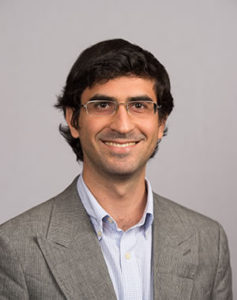We have had a wonderful array of speakers this month at the Ford School. The range of topics is illustrative of the breadth of faculty and student policy interests here. I wanted to highlight a couple that I attended and found extremely interesting.
On January 31st (so almost February!), we co-hosted a panel discussion entitled Beyond the Wall: The Human Toll of Border Crossings. The panelists included Brooke Jarvis, a contributing writer to The New York Times Magazine and the author of Unclaimed, an investigative narrative about an unidentified migrant bed-bound in a San Diego hospital for 16 years and the networks of immigrant families searching for their missing loved ones. She was joined by Jason De León, an associate professor of Anthropology at the University of Michigan and director of the Undocumented Migration Project, a long-term anthropological study of undocumented migration between Mexico and the United States that uses ethnography, archaeology and forensic science to understand this clandestine social process. In recognition of his work on this project, De León was awarded a MacArthur Genius Grant in 2017. The third panelist was Ann Lin, an associate professor at the Ford School. She teaches courses on public policy implementation, gender and politics, qualitative research methods and immigration. Lin is currently studying potential immigration policies and the beliefs of American immigrants with a special focus on Arab Americans.
In their really moving discussion, the panel shed light on the true human cost of undocumented migration, including many lives lost in crossing the desert, family members who disappear and are never heard from again as well the many abuses endured by these migrants.
On Monday, February 19th, as part of our Citi Foundation lecture series, we hosted Ana Navarro. If that name sounds familiar to you, you may have heard her on many different news programs. Ana is a GOP strategist and political contributor to CNN, ABC News, and Telemundo.
Ana frequently appears in the media, sought after by Meet the Press, Bill Maher’s Real Time, Anderson Cooper 360, and The View, to name a few. She is in touch with the political issues people are talking about, and in presentations, she discusses the latest hot button issues in politics, giving audiences an insider’s view of the upcoming elections and a roadmap for where the country is headed.
In her wide ranging and entertaining talk, Ana discussed topics such as the state of both the Democratic and Republican parties, the upcoming mid-term elections, gun control, tax reform and immigration policy. Her candor in assessing the situation of the U.S., while sometimes a bit depressing, was refreshing and educational.
If you have not yet checked out the events section of our website, I would encourage you to do so. You can find links to the video stream of past events as well as the schedule of upcoming speakers. Take a look!

